The Caterpillar Service – Day One
The call of the Long-Tailed Bushtit is quite distinctive. It must be, because even I can recognise it. ‘Tsurp’, they say, to each other in the trees. ‘Tsurp’. It’s a cute contact call. They seem to be saying ‘I’m here’. Are you still here?’ and ‘I’m okay. Are you okay? Talk to me!’ I’ve heard that call a couple of times on evening walks in the same place, in an oak tree on a public footpath near my house in South Devon. It’s made me suspect there might be a nest nearby.
I’ve recently seen a series of beautiful tiny films of Long-Tailed Tits by the local entomologist John Walters, which I’ve loved. They are such endearing creatures and their nests are a marvel; all lichen and spiders’ webs stuffed with feathers. Rather than getting some photographs which are good enough I’d really like to get some shots which are simply good.
I’ve got a couple of hours to spare, so I pack a bag and walk the mile to the tree. I can still hear them. ‘Tsurp’. I’m standing on the public footpath when I see one flying with a caterpillar. It lands on a tiny sycamore the other side of a large bramble patch. Then it launches itself towards me, hovers like a fluttering angel and dives down and disappears into the bramble patch just a few metres away. I can hear the sound of muffled childish excitement from a nest which is completely hidden in metres of impenetrable spikes.
Fabulous.
I keep watch and another one comes in with a dangling green caterpillar. Then there’s nothing for at least twenty minutes.
I decide I’m going to try to get some shots of them in flight. It’s an audacious idea. They’re tiny, fast and fluttering. I’ll need a very fast exposure time to freeze the movement, lots of light, as much of the critical areas in focus as possible, and no more digital noise than is sensible. Then I’ve got to get perfect focus on the eyes and beak, take the shot, and all within the two seconds from when they appear to when they disappear.
I do it, and my-oh-my is that caterpillar hairy:
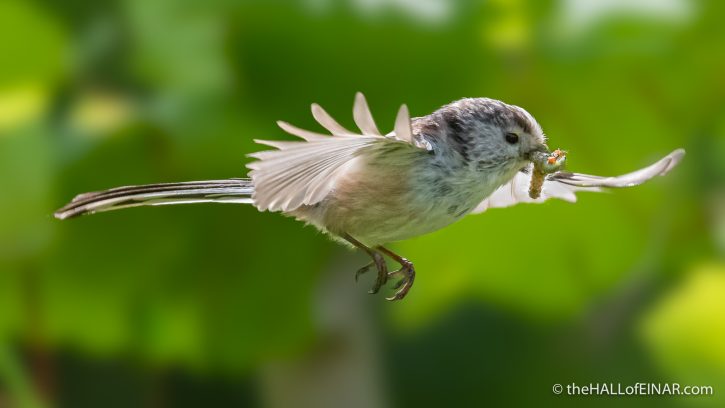
As it heads down to the nest I have one more shot:
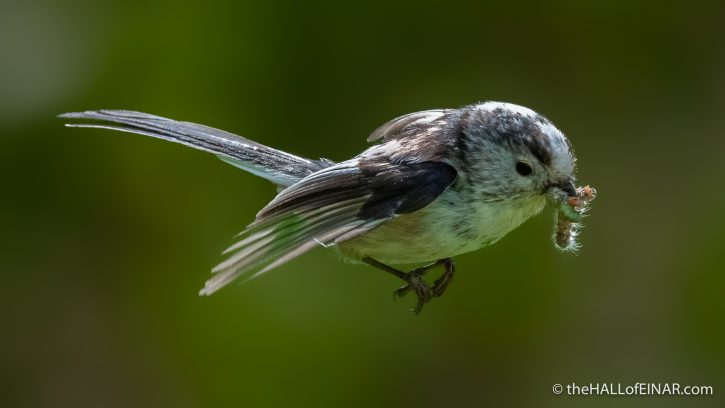
Then it’s gone. It’s a problem for my photography that they are against the light. They seem to like a flight path with the sun directly behind them. I spot one behind me and see the difference made by sun on their faces. Their whole character comes out, beautifully.
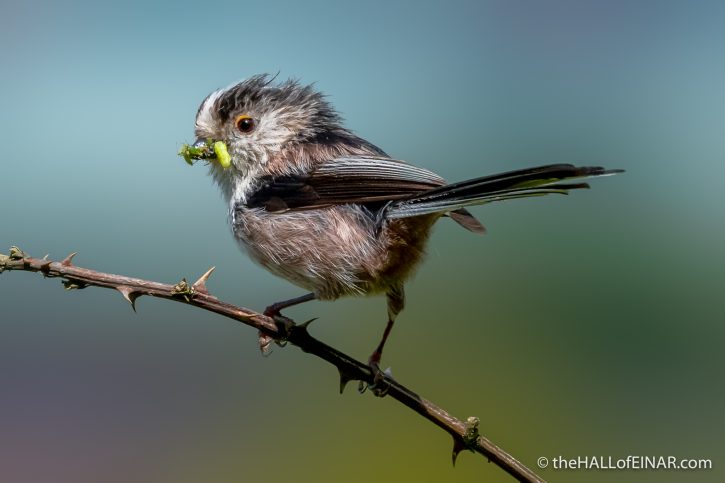
It looks like a very hard working parent. Watching them for hours gives me an insight into their patterns of feeding behaviour. They bring beaks full of invertebrates one after another and then are gone on foraging trips. I can see and hear them approaching, and identify their preferred flight-paths. Seeing them fluttering above the nest, before they drop down into it, gives me a tiny opportunity to get shots I’m pleased with.
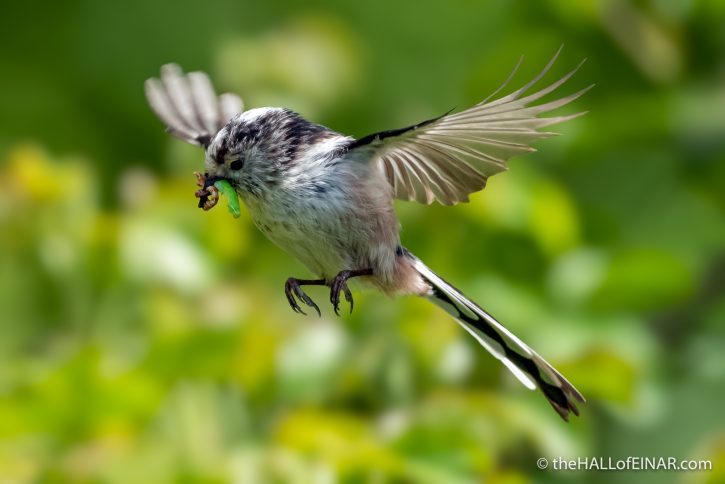
It’s technically quite difficult.
They’re much simpler to photograph when they’re perched. As I’m on a busy footpath I’m constantly having to move to let people get past. I’ve got to move at least two metres out of their way.
When other people linger, the Long-Tailed Bushtits seem nervous and won’t go to the nest. They fly close and then fly away again. I’ve been here so long they appear to take no notice of me at all. Trying to fly with a beak full of caterpillar must play havoc with your aerodynamics.
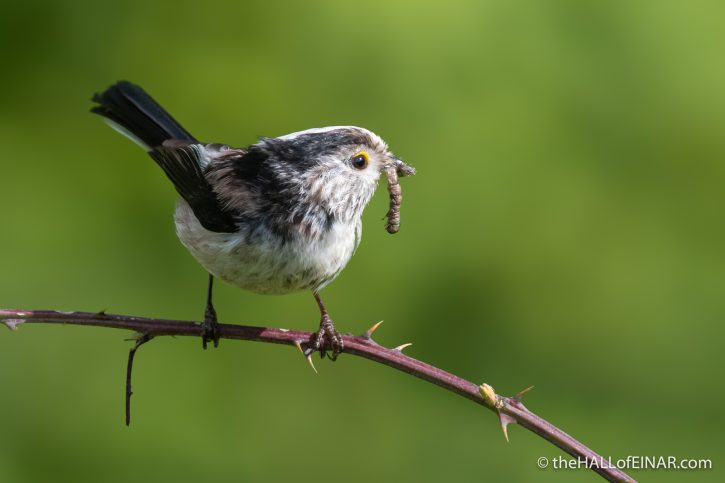
This one is concerned about giving away the position of the nest, as there’s a dog-walking couple going past. It waits and then goes to the nest a different route, heading under the brambles at the far end of the patch and then working its way along underneath. I can see the leaves above it vibrating as it clings to the stems below and makes its way to the waiting chicks.
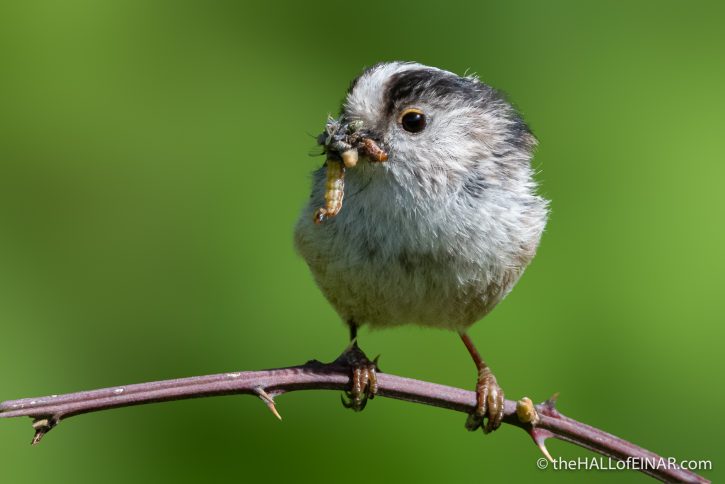
I particularly like it when they have green caterpillars in their beaks, and the shape of their wings in flight is fascinating..
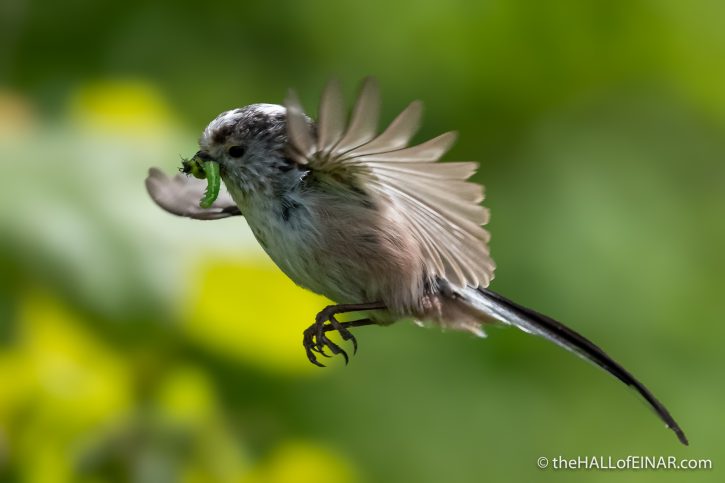
It’s been a privilege to spend time with them. As I pack up ready to leave I see the parents come in to feed the chicks for one last time. There are three adult birds. I’m not imagining it. I can see all three at the same time. That means that there are either two nests down there or an aunt or uncle is helping feed the family.
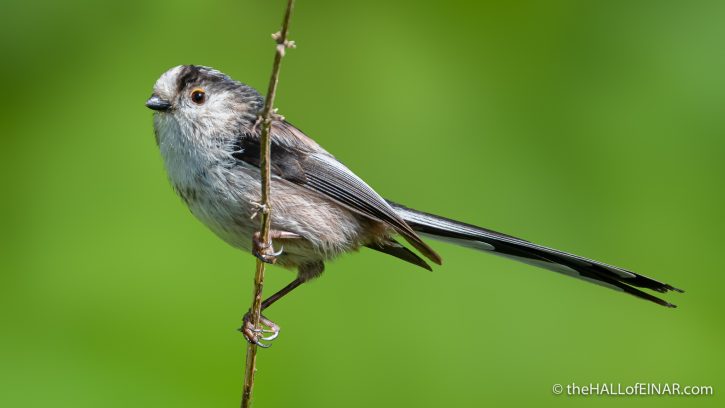
I’m coming again tomorrow to witness more of this extraordinary caterpillar service. I hope you’ll join us.
More Long-Tailed Bushtits
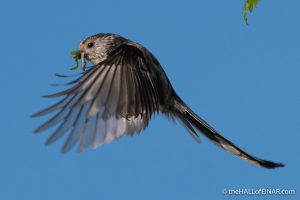 The Caterpillar Service – Day Eight I only have a snatched hour with the Long-Tailed Bushtits today. I still get some lovely views. I've been trying… read more
The Caterpillar Service – Day Eight I only have a snatched hour with the Long-Tailed Bushtits today. I still get some lovely views. I've been trying… read more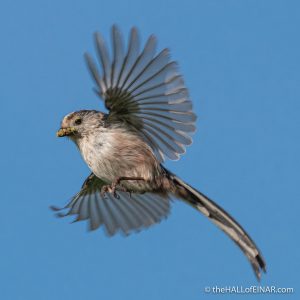 The Caterpillar Service – Day Seven Today the Long-Tailed Bushtits are working as hard as ever to gather invertebrates: After a week I'm much happier with… read more
The Caterpillar Service – Day Seven Today the Long-Tailed Bushtits are working as hard as ever to gather invertebrates: After a week I'm much happier with… read more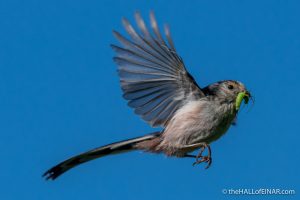 The Caterpillar Service – Day Six Here's the scene next to a busy public footpath: It may appear tranquil but deep within the brambles is a… read more
The Caterpillar Service – Day Six Here's the scene next to a busy public footpath: It may appear tranquil but deep within the brambles is a… read more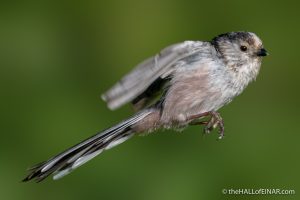 The Caterpillar Service – Day Five The caterpillars keep on coming. Beak-fulls of them. Green ones, brown ones, grey ones and orange ones; they've all been… read more
The Caterpillar Service – Day Five The caterpillars keep on coming. Beak-fulls of them. Green ones, brown ones, grey ones and orange ones; they've all been… read more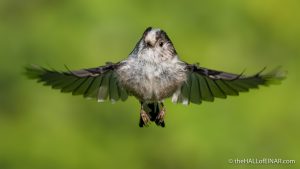 The Caterpillar Service – Day Four It's Day Four of photographing Long-Tailed Bushtits for me. After all, what is there to do when I've got no… read more
The Caterpillar Service – Day Four It's Day Four of photographing Long-Tailed Bushtits for me. After all, what is there to do when I've got no… read more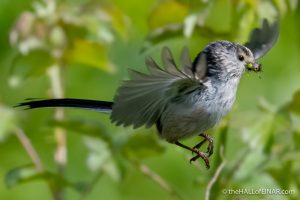 The Caterpillar Service – Day Three It's Day Three of following the Long-Tail Bushtit family on waste ground near my house in South Devon. I say… read more
The Caterpillar Service – Day Three It's Day Three of following the Long-Tail Bushtit family on waste ground near my house in South Devon. I say… read more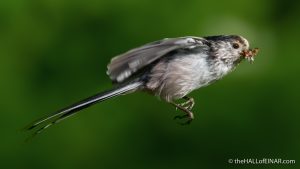 The Caterpillar Service – Day Two Yesterday I spent five hours on a public footpath overlooking a Long-Tailed Bushtits' nest. I'm happy that I wasn't disturbing… read more
The Caterpillar Service – Day Two Yesterday I spent five hours on a public footpath overlooking a Long-Tailed Bushtits' nest. I'm happy that I wasn't disturbing… read more